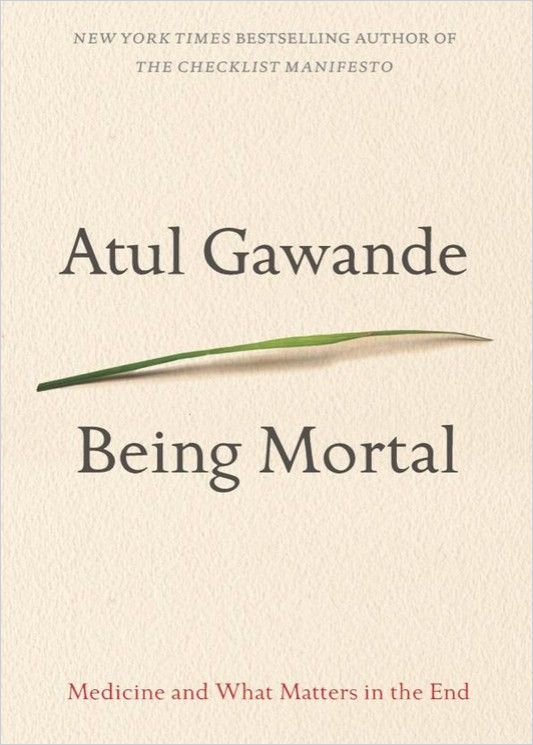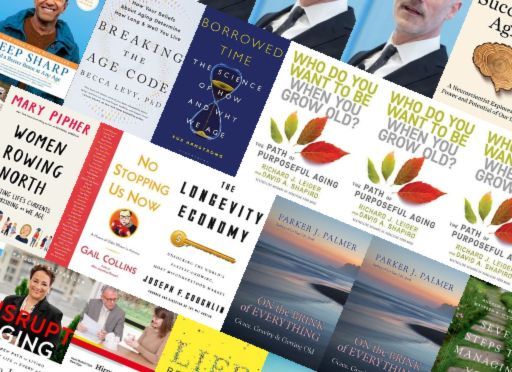MacArthur Fellow, Harvard professor and National Book Award finalist Atul Gawande combines compassion with his medical know-how to present a sobering account of the state of care for the elderly in the United States.

A Long Road
MacArthur Fellow, Harvard professor, surgeon, New Yorker writer and National Book Award finalist, Dr. Atul Gawande writes compassionately about how medicine and the body affect life, work, the spirit and the hard job of getting older. Gawande, who serves in President Joseph Biden’s administration as assistant administrator for global health in the US Agency for International Development, addresses mortality with knowledge and depth. He writes about knowing you are born to die and what the processes of dying entail. He describes changing attitudes toward mortality and related shifts in medical and nursing policies.
Terminal Illness
Most doctors know little about terminal illnesses or managing the process of aging. This reality dawned on Gawande when he began practicing medicine.
I learned about a lot of things in medical school, but mortality wasn’t one of them.Atul Gawande
He also learned that life-and-death decisions often baffle patients and their loved ones, and that doctors seldom offer wise guidance.
Scant Support
In the United States, doctors gauge the elderly by their ability to perform basic tasks – such as bathing, shopping for and preparing food. Someone who is unable to perform these duties is likely to end up in a nursing home.
America lacks methods and practices that enable aging people to stay in their homes with their families. Retirement centers offer seniors facilities and communities where they can live with some independence. Thus, modern societies have put an end to multigenerational living. Older people, Gawande emphasizes, often age alone.
A Multipronged Assault
Tooth enamel is the hardest substance in the body, but even it deteriorates with age, yellowing, softening and losing blood supply. Soft tissues harden with age. Blood vessels, joints, the heart and the lungs toughen and atrophy. Even the brain shrinks.
With luck and fastidiousness – eating well, exercising, keeping our blood pressure under control, getting medical help when we need it – people can often live and manage a very long time.Atul Gawande
Traditional medicine offers few answers for long-term decline. The typical aging patient suffers poor vision, failing hearing, joint pain, arthritis, high blood pressure and diabetes. Falls prove treacherous for older people. Balance problems cause 350,000 Americans a year to fall and break a hip, and 40% of them end up in nursing homes as a result. Yet fewer than 300 doctors a year complete training as geriatricians, so America faces a worrisome shortfall of physicians for the elderly.
Prison
Institutionalized older people find their loss of independence particularly jarring. They no longer control when they go to sleep, wake up, eat or bathe. The environment often leaves residents without purpose or meaning in their lives.
As fewer of us are struck dead out of the blue, most of us will spend significant periods of our lives too reduced and debilitated to live independently.Atul Gawande
If they cannot be at home, aging people prefer assisted living facilities – health care centers that feel more like homes and offer patients greater autonomy and some control over their daily lives.
Meaning
Gawande reports that companion animals have a positive effect on the elderly. Adding pets cut the deaths at one facility by 15%.
In the early 1990s, Bill Thomas was a medical director at a different facility, a nursing home in upstate New York, home to a number of severely disabled elderly residents. Thomas ran a working farm, and he concluded that his residents were miserable because nothing in their institutionalized lives engaged them. Thomas persuaded state regulators to allow the nursing home to bring in a menagerie of pets – cats, dogs and 100 parakeets. Thomas also replaced the institution’s artificial plants with live plants in every room.
Whatever the limits and travails we face, we want to retain the autonomy – the freedom – to be the authors of our lives.Atul Gawande
The tradition-minded staff at the nursing home didn’t like Thomas’s experiment. Once, in the middle of the night, he got a call from a nurse who was upset that a dog had made a mess on the floor. She expected Thomas to come in and clean it up.
Thomas kept pushing his companion animal program. Patient mortality rates declined, and the dispensing of drugs for agitation, such as Haldol, also declined – which reduced the nursing home’s pharmaceutical costs. Aging people need a reason to live, and the plants and animals provide one. Thomas’s pilot project inspired new thought about how people with advanced dementia experience their final years.
Overestimating Life Span
Physicians of 500 terminally ill people estimated how long their patients had to live. More than 60% of the doctors overestimated the life span of their patients, while 17% underestimated it.
There is always a long tail of possibility, however slim. What’s wrong with looking for it?Atul Gawande
Physicians aren’t keen to deliver bad news at the end of life. No one wants to be the doctor who took hope from a patient by underestimating how many months or years he or she potentially had left to live.
Costly Lawsuits
In 1991 Nelene Fox, a cancer patient in California, learned she had an aggressive form of metastatic breast cancer. Her doctors offered an experimental treatment involving chemotherapy and bone marrow transplants. But her insurer, Health Net, rejected the treatment, saying it wouldn’t pay for an unproven protocol.
No matter how much one has seen, nature refuses predictability.Atul Gawande
Fox raised $212,000 to pay for the treatment, but it did not save her. Her husband sued Health Net and won a jury award of $89 million. But time vindicated Health Net: Bone marrow transplants didn’t help patients, and the procedure only increased their suffering.
Socratic Courage
Gawande guides each of his terminal cancer patients through a cost-benefit analysis of possible treatments. For one patient, he began a risky operation, but abandoned it when he saw there was little chance that it could provide relief. The patient died, but she and her family were at peace because they had exhausted the medical possibilities.
Endings matter, not just for the person but, perhaps even more, for the ones left behind.Atul Gawande
The author cites the necessity for Socratic courage – the willingness to accept the truth of aging.
The Human Core
Those who are not yet middle-aged may find this affecting work easier to read than older people who are staring aging in the face – or are in denial about the possible proximity of the ordeals Gawande details. His frank, moving discussion of the struggles of old age and its discontents is sobering, but may help older adults and their families recognize the need to make the sound, conscious choices that must accompany the hard truths of aging. Gawande may also alarm younger readers who have given no thought to the travails he discusses. His voice is spare, clear and humane. A deep thinker and an accessible conversationalist, Gawande finds the human emotional core of this brutally complex subject.
Gawande also wrote Complications: A Surgeon’s Notes on an Imperfect Science; Better: A Surgeon’s Notes on Performance; and The Checklist Manifesto: How to Get Things Right.






